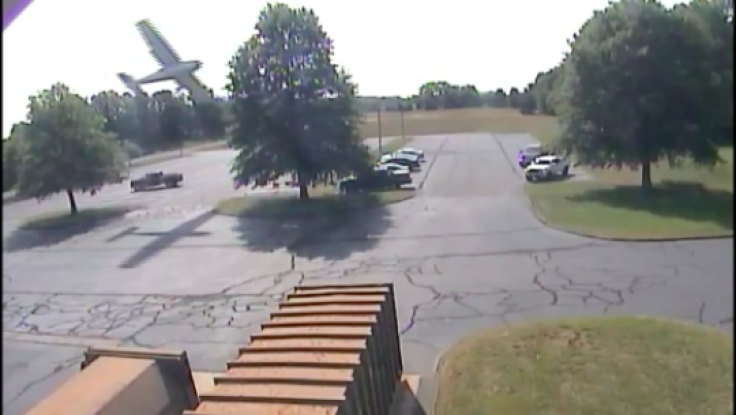WATCH: 79-Year-Old Pilot Survives Shocking Plane Crash Into Parking Lot

A 79-year-old Connecticut pilot Monday survived with just minor injuries after his single-engine plane crashed into a business parking lot. Surveillance cameras captured the crash, which showed the plane swerving into a tree before slamming wheels down on the concrete.
The pilot, Manfred Forst, a native of Germany, was transported to the Hospital of Central Connecticut. Forst crashed the 1981 Cessna 172 plane at Carling Technologies near the Roberston Field Airport in Plainville, Connecticut, at about 11:24 a.m., according to local reports.
He said he was headed to breakfast when his plane suddenly went down.
"I was very fortunate I got out of it without any real injuries," Forst told NBC-affiliate WVIT. "I'm just so thankful."
The Federal Aviation Administration (FAA) is expected to investigate the crash, police said.
Interstate Aviation, which monitored operations at the town’s airport, rented the plane to Forst, and declined to comment, the Hartford Courant reported.
A witness told the Hartford Courant that the plane swerved to one side and then wobbled before crashing.
Bristol native Dave Thayer often visited Robertson Airport and had seen many planes land and take off. He was near the parking lot when he saw the Cessna fall out of the sky. The plane dropped very low and suddenly deviated from the runway, Thayer told the Courant.
"I knew he had a problem. It was wavering, it was going very slow," Thayer said. "I heard the bang and knew that he went down."
Monday's incident marks the eighth small plane crash of the year in Connecticut. A total of six people died in other crashes.
Every plane crash should be looked at individually, which is the job of the FAA, pilot and Aviation doctor Michael Teiger told WTIC, a Fox affiliate in Hartford, Connecticut, on Monday.
"Aviation in and of itself is a safe experience for people who follow the rules, of course, there are human errors that happen where mistakes are gonna happen and that's the human element of flying but aviation in and of itself is safe," Teiger said.
"The FAA sets up tremendous rules and regulations for what pilots are supposed to do and not do, we go through extensive checks before we take off, we’re supposed to have recurring training, we’re supposed to have our aircraft checked on a regular basis either annually or bi-annually so there are a lot of checks and balances that are much different than driving a car."
© Copyright IBTimes 2024. All rights reserved.











